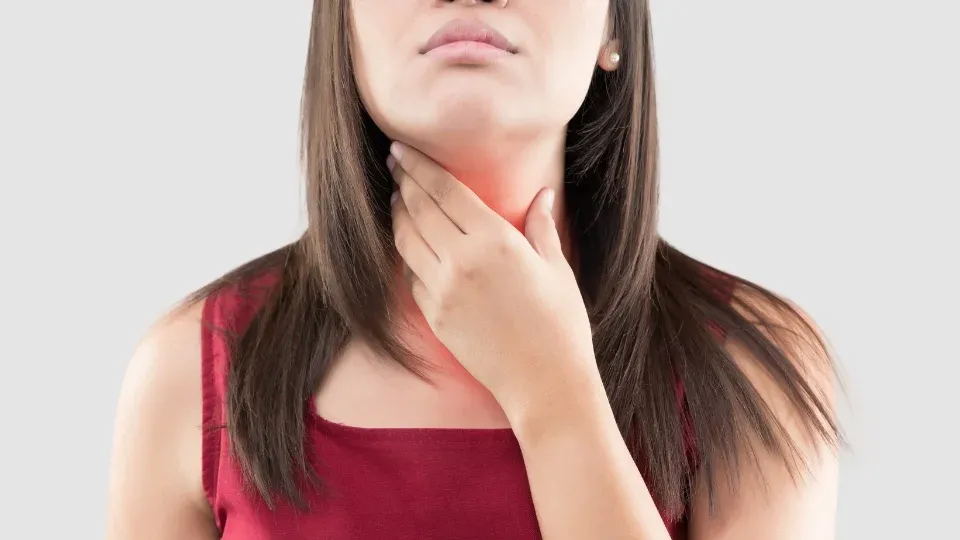
The Primary Connection Between Acid Reflux and Sore Throat
Do you experience a sore throat and a burning sensation in your chest and throat? If so, you may be suffering from acid reflux. Acid reflux happens when the sphincter at the bottom of the esophagus does not close, allowing acids to back up into the throat. Lean meats, non-citrus fruits, and vegetables are the best options for individuals suffering from acid reflux.
Read more: What To Eat With Acid Reflux.
Sometimes, acid reflux or GERD can cause a sore throat and other symptoms of inflammation. This is called laryngopharyngeal reflux (LPR). (martinwater.com) Read on to understand what could be causing your sore throat and what can be done to relieve the discomfort!
What Is Acid Reflux: Causes and Symptoms
Acid reflux, or gastroesophageal reflux disease (GERD), occurs when stomach acid flows back into the esophagus. This can cause burning pain in your chest or throat and can lead to soreness and discomfort. Common symptoms of GERD include heartburn, regurgitation, difficulty swallowing, food coming back up the throat, and a sour taste in the mouth.
The underlying cause of GERD is usually related to a malfunctioning lower esophageal sphincter (LES). The muscle is responsible for keeping stomach contents from entering the esophagus. When it fails to close properly, acid reflux can occur.
Aside from the GERD symptoms mentioned above, acid reflux can also lead to a sore throat. This symptom can range in severity depending on the person and is usually caused by throat irritation from stomach acids. It may feel like a burning sensation or tightness in the throat. Additionally, you may experience hoarseness or chronic cough, throat clearing, and an itchy, dry throat.
This happens because stomach acid can irritate the throat and voice box, causing inflammation.
When your throat is sore, you may also experience difficulty swallowing or feel something stuck in the throat. In some cases, acid reflux can cause ear pain, sinus infections, and tonsillitis.
Read more: What Foods Trigger Acid Reflux?
Best Ways To Treat LPR
LPR, or laryngopharyngeal reflux, can cause a sore throat and is often caused by acid reflux. Treatment for this condition may include lifestyle changes as well as medications.
Lifestyle Changes: Lifestyle changes such as avoiding specific triggers (for example, foods that are high in fat or spicy), eating smaller meals throughout the day, and losing weight can be beneficial in helping to reduce the symptoms of LPR.
Obesity is one factor that can contribute to acid reflux, so losing weight may help reduce the episodes. Eating meals at least two hours before bedtime and sleeping with your head elevated can also help reduce symptoms. This helps keep stomach acid in the stomach and away from your throat.
Medications: Antacids, including H2 blockers or proton pump inhibitors (PPIs), can help neutralize the acid in your stomach and throat, relieving soreness. If lifestyle changes are not enough to manage the symptoms of LPR, your doctor may prescribe medications for short-term or long-term relief.
Smoking Cessation: Quitting smoking can help reduce your chances of developing LPR and other conditions associated with GERD. As a smoker, quitting is essential to improve your overall health. Acid reflux is a medical issue in which stomach acid flows back into the esophagus, irritating the lining of the throat and causing a burning sensation in your chest and throat. Call Ascension Saint Agnes for Gerd reflux in Baltimore. We provide comprehensive care for individuals with acid reflux and sore throat. Contact us today to find relief and improve your quality of life.